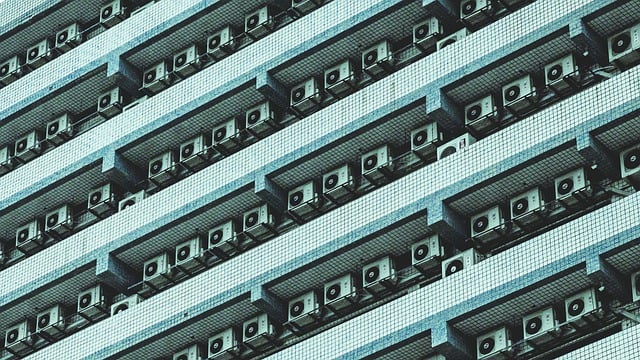In the face of an imminent decade of record warmth, urgent shifts in our cooling strategies are imperative. This article delves into the transformative realm of sustainable indoor technologies, emphasizing their role in creating resilient living spaces amidst escalating heatwaves. From swift transitions away from fossil fuels to advancements in eco-friendly air conditioning, the narrative is shifting towards proactive measures. The spotlight is on AitVentec China 2024, slated for June 3-5 in Shanghai, where pioneers will showcase the innovations shaping the future of sustainable cooling solutions.

As we stride into what promises to be the warmest decade in recorded history, the surge in extreme heat demands an immediate reevaluation of our cooling strategies. From once being an anomaly, extreme heat has evolved into a recurring weather pattern, necessitating urgent and innovative approaches to mitigate its impact.
In 2024, the livability of our neighborhoods hinges on transformative community decisions and regional government actions. Urgent transitions away from fossil fuels must be coupled with advancements in sustainable air conditioning, cooling, and ventilation technologies to safeguard communities from the escalating dangers of heatwaves.
The Silent Revolution: Sustainable Indoor Technologies
Indoor technologies are at the forefront of our battle against rising temperatures. Sustainable air conditioning, cooling, and ventilation systems represent a beacon of hope in this struggle. Unlike traditional cooling methods that exacerbate climate risks, these technologies aim to reduce environmental impact while ensuring indoor comfort.
COP28’s acknowledgment of the environmental strain posed by conventional air conditioning systems has paved the way for commitments to enhance and regulate sustainable indoor technologies. These innovations not only curb greenhouse gas emissions but also alleviate the strain on local energy grids, thus preventing blackouts during heatwaves.
Sustainable Air Conditioning
While traditional air conditioning exacerbates climate risks, sustainable air conditioning technologies emerge as a viable solution. These innovations focus on minimizing energy consumption, utilizing eco-friendly refrigerants, and incorporating smart technologies to optimize cooling efficiency. The aim is to strike a balance between comfort and environmental responsibility.
Sustainable air conditioning addresses not only the environmental impact but also the accessibility challenge. Research indicates that cooling the body, rather than the entire indoor space, is a more affordable and sustainable strategy. A combination of fans and wet towels proves effective in mitigating the impact of extreme heat, ensuring that everyone, regardless of economic status, can access relief.
Indoor Cooling: A Pillar for Resilience in the Face of Escalating Heatwaves
As we delve deeper into the imperative of sustainable indoor technologies, it is crucial to recognize their role as a pillar for resilience in the face of escalating heatwaves. These innovations extend beyond air conditioning and encompass a spectrum of solutions, including advanced cooling and ventilation systems designed to create comfortable and environmentally friendly indoor environments.
The shift towards sustainable indoor cooling is not just a response to climate challenges; it is a paradigm shift that addresses the global need for resilient living spaces. With the majority of the world’s population residing in urban areas, where the urban heat island effect exacerbates heat-related issues, the significance of sustainable indoor technologies cannot be overstated.
Efforts to design buildings with enhanced thermal efficiency, deploy advanced insulation materials, and integrate smart technologies for energy optimization are integral components of sustainable indoor cooling. These measures not only contribute to reducing energy consumption but also alleviate the burden on energy grids during peak heat periods, ensuring uninterrupted access to cooling solutions.
Air Conditioning Reimagined: From Environmental Strain to Eco-Friendly Comfort
The conventional narrative surrounding air conditioning has been one of environmental strain and energy inefficiency. However, the reimagining of air conditioning technologies presents an opportunity to transform this narrative. Sustainable air conditioning systems now focus on incorporating eco-friendly refrigerants, implementing energy-efficient designs, and embracing smart controls for precise temperature regulation.
The concept of cooling the body rather than the entire space is gaining traction as a cost-effective and sustainable strategy. Utilizing a combination of fans and wet towels not only reduces energy consumption but also addresses the accessibility challenge, ensuring that effective cooling solutions are available to a broader demographic.
Preparing for the Future: AitVentec China 2024
As we navigate the future of sustainable indoor technologies, events like AitVentec China 2024 take center stage. Scheduled for June 3-5 at the National Exhibition and Convention Center in Shanghai, this international expo promises to be a melting pot of ideas, innovations, and collaborations in the realm of air conditioning, cooling, and ventilation.
AitVentec China 2024 serves as a platform for industry leaders, researchers, and policymakers to showcase and explore the latest advancements in sustainable indoor technologies. The expo is not just an exhibition but a collective endeavor to shape the future of cooling solutions. It is an opportunity to witness firsthand the transformative impact of sustainable indoor technologies on our journey towards a cooler, more sustainable future.
Global Disparities and Future Visions
The repercussions of intensifying heat cycles will disproportionately affect communities worldwide, with those least responsible for climate change likely to bear the brunt. Research suggests that within 80 years, tropical regions may face daily extreme heat, while currently temperate areas will confront annual heatwaves.
As periods of extreme heat become less rare and more anticipated, the urgency for communities to act is undeniable. Without immediate action, unavoidable heatwaves will become a reality in many parts of the world, underscoring the necessity for a paradigm shift in recognizing and addressing the drivers and threats of climate change on a global scale.

